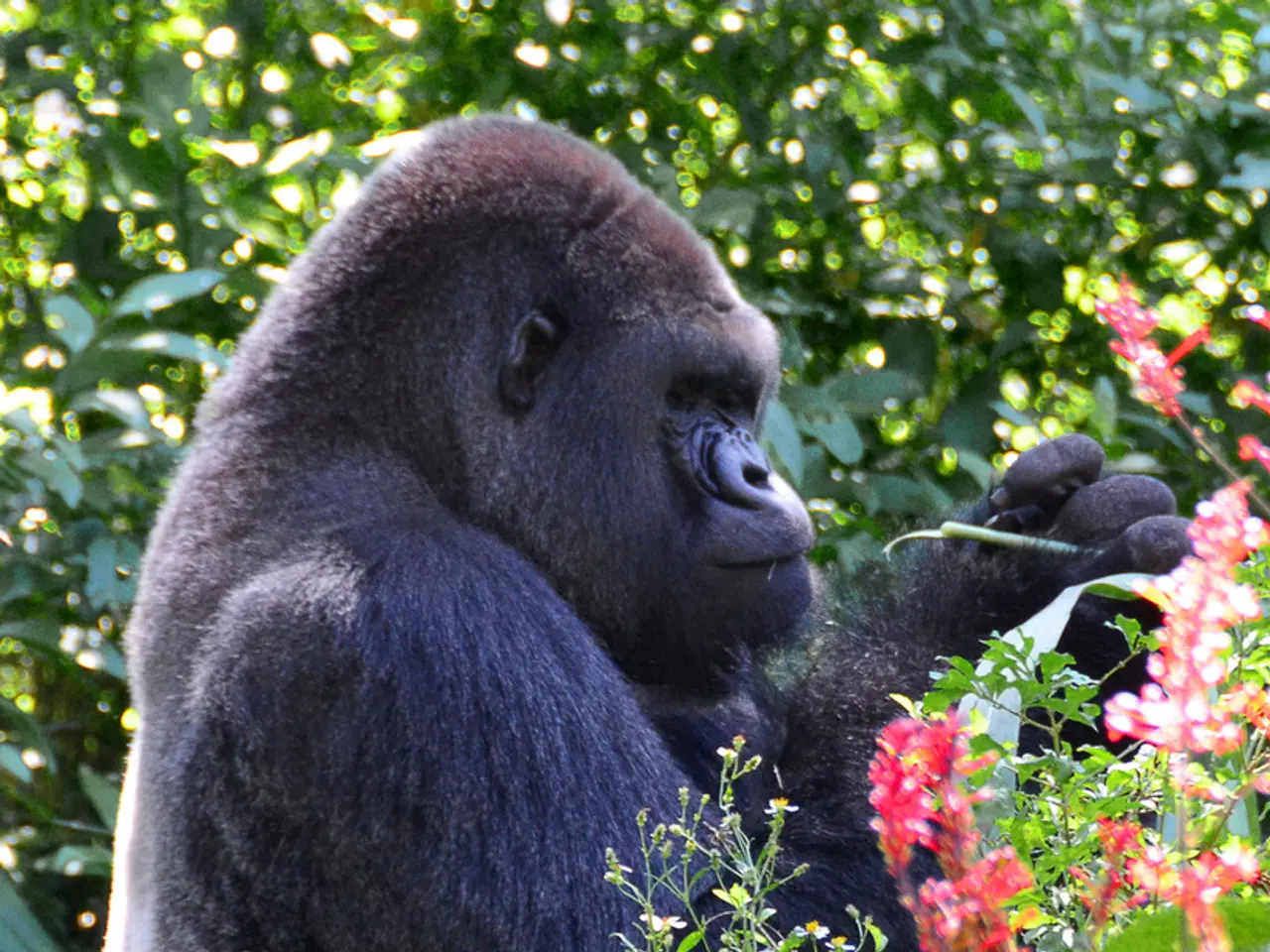Gorilla Relationships' Timeless Ties Unveiled amidst Rwandan Observations
New Study Reveals Complex Social Lives of Female Mountain Gorillas
A groundbreaking study, published in the Proceedings of the Royal Society B, has shed light on the intricate social lives of female mountain gorillas, challenging previous assumptions and offering fresh insights into their social dynamics.
Led by researcher Victoire Martignac from the University of Zurich, the study analyzed the "dispersal" patterns of 56 female gorillas over a period of two decades, within the Volcanoes National Park in Rwanda. The research was carried out in collaboration with the Dian Fossey Gorilla Fund.
The key findings reveal that female gorillas do not disperse randomly but preferentially join new groups containing females they have previously known. This behavior helps them reduce social risks associated with entering new groups where they start at the bottom of the hierarchy.
Furthermore, females avoid groups with males they grew up with, likely as a strategy to reduce inbreeding since paternity is uncertain. This suggests that females rely on past social experiences and the quality of relationships rather than broad group traits such as size or sex ratio when choosing new groups.
The long-term data allowed scientists to analyze the choices regarding new social groups made by female gorillas. It was noted that gorillas would often gravitate towards other females with whom they had previously formed bonds.
These long-term female-to-female social ties act as social allies and “recommendations,” helping females integrate more smoothly into new groups by providing familiar support and signaling a safe, stable environment led by the dominant male they know.
The study also highlights that female migrations are structured by complex social networks beyond immediate groups, showing that mountain gorilla sociality includes broader, multi-group relationships that influence dispersal decisions.
This challenges prior assumptions that social group membership is primarily shaped by immediate ecological factors, highlighting instead the importance of individual social history and alliances in female gorilla social structure.
In summary, the study reveals that female mountain gorillas form durable social connections across groups that strongly influence their dispersal choices, reinforcing a more networked and socially complex understanding of mountain gorilla social systems.
The new insights into gorilla social lives reframe how we think of female-female social relationships, inviting further exploration into how such relationships might mirror social dynamics in other species, including humans.
[1] Martignac, V., et al. (2021). Social networks and dispersal in mountain gorillas. Proceedings of the Royal Society B. [2] The Dian Fossey Gorilla Fund. (2021). New study reveals female mountain gorillas form durable social connections across groups. [3] University of Zurich. (2021). Female mountain gorillas form durable social connections across groups. [4] National Geographic. (2021). Female mountain gorillas form durable social connections across groups. [5] BBC News. (2021). Female mountain gorillas form durable social connections across groups.
- The study's findings, published in the Proceedings of the Royal Society B, also suggest that understanding social dynamics in other areas, such as fashion-and-beauty, might require looking beyond individual preferences and considering the influence of past relationships and social networks.
- When it comes to choosing a lifestyle, consistency in food-and-drink preferences might stem from familiar connections and relationships, much like female gorillas' tendencies in forming new social groups.
- Exploring the social lives of pets, particularly dogs and cats, could provide us with new insights into how relationships with others, whether within their species or human counterparts, affect their behavior and decisions, such as choosing a new home-and-garden.
- Extending the implications of these findings to relationships between people, it might be wise for travelers exploring new cultures to seek out those with whom they share common ground, or previous connections, to create a more comfortable and welcoming experience.
- Additionally, the importance of past social experiences and alliances, highlighted in the study, may play a significant role in student decisions to participate in a sports team or club, choosing to attend a university, or seeking opportunities in education-and-self-development, as they impact their overall experiences and success.




